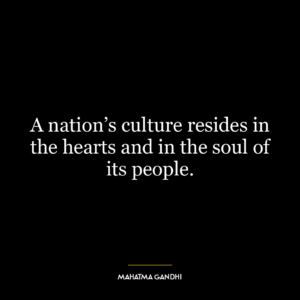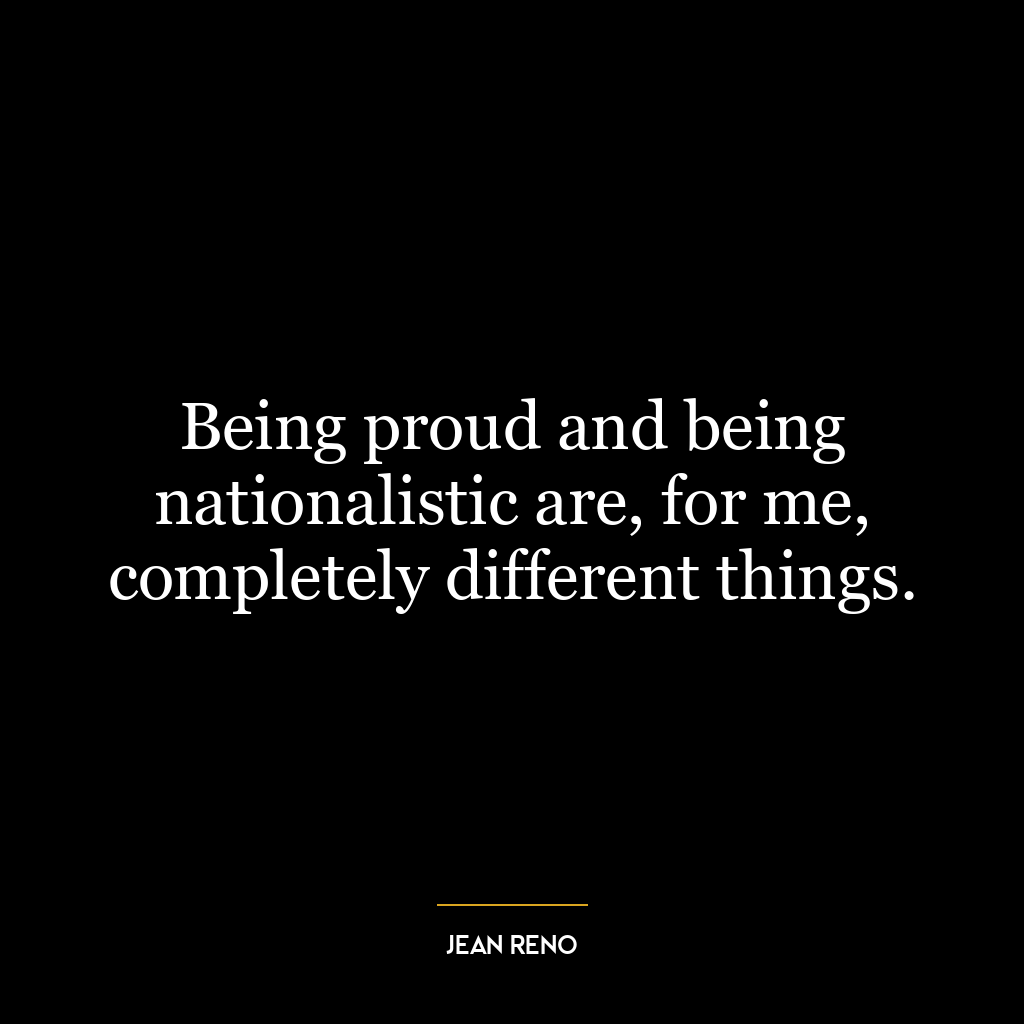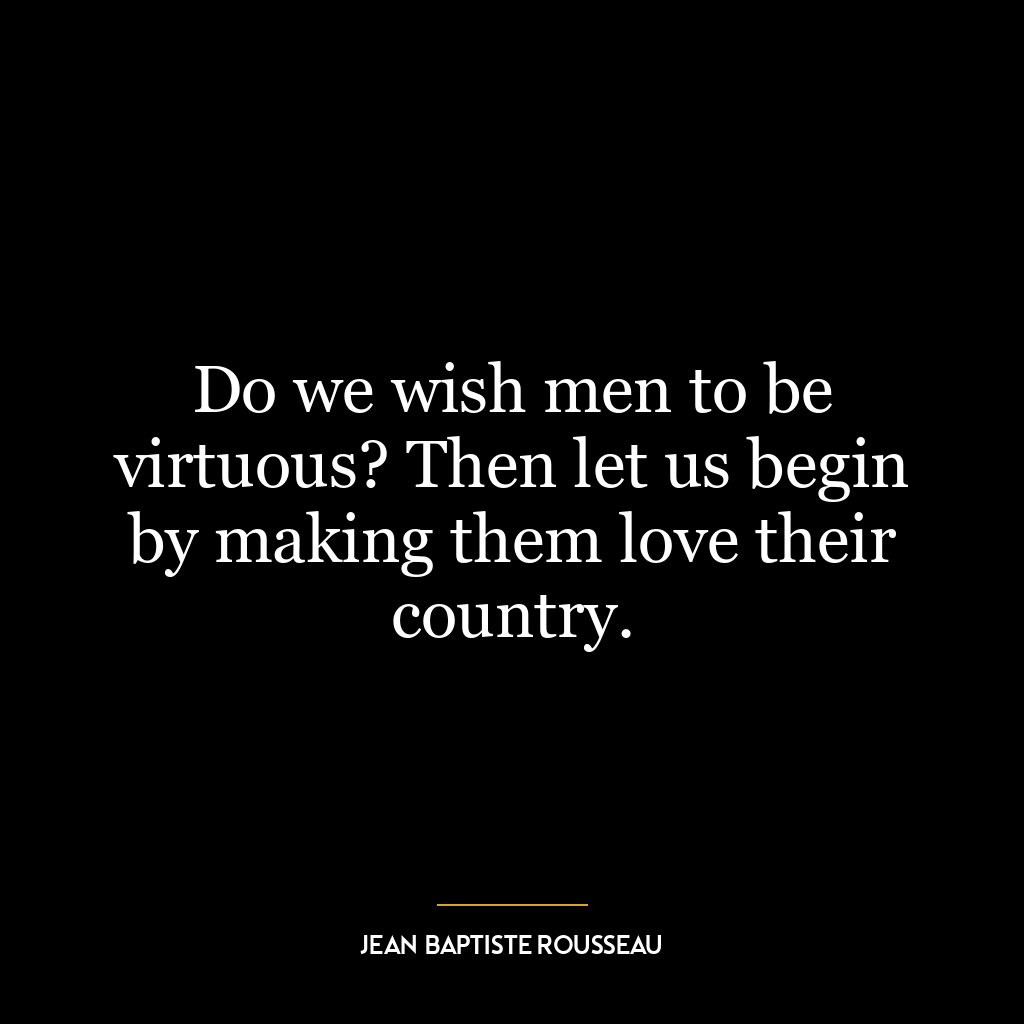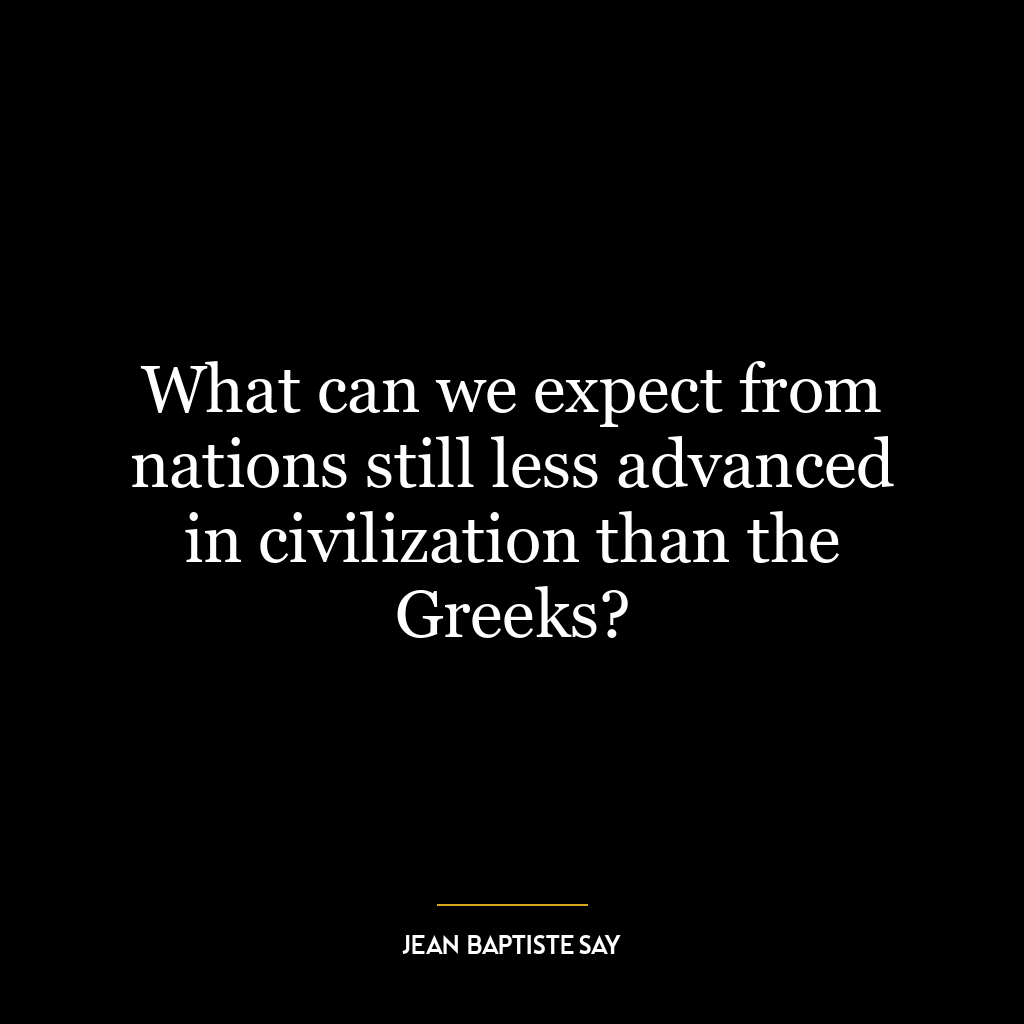Nonviolent nationalism is a necessary condition of corporate or civilized life.
This quote emphasizes the importance of resolving conflicts and disagreements in a peaceful, nonviolent manner. It suggests that for society to function effectively – be it within a corporate environment or broader civilization – there must be an inherent respect for the rights and freedoms of others. This involves embracing nationalism, but not at the expense of peace.
Nonviolent nationalism refers to patriotism that does not resort to violence or aggression to assert its beliefs or protect its interests. Instead, it uses dialog, negotiation, and other peaceful means. This is essential in any civilized society because violence only breeds more violence, leading to a never-ending cycle that disrupts social order.
In a corporate context, this can be interpreted as promoting healthy competition rather than cutthroat practices. Companies should strive for success but not by undermining others through unethical means. A harmonious business environment promotes collective growth and benefits everyone involved.
In today’s world where conflicts are common – both at micro (individual) level and macro (national) level – Gandhi’s philosophy becomes highly relevant. Nations need to foster a sense of patriotism among their citizens without encouraging hostility towards other countries; individuals need to learn how to disagree with each other without resorting to aggression.
For personal development also this idea holds great significance. One needs self-love but not at the cost of hating others; one may stand up for oneself without hurting another person physically or emotionally; one may compete with others while maintaining ethics and respect towards competitors.
Hence Gandhi’s concept of nonviolent nationalism calls for balance between self-interests & respect towards others’ rights which is critical in creating harmonious co-existence whether it’s within individuals or nations as whole.










